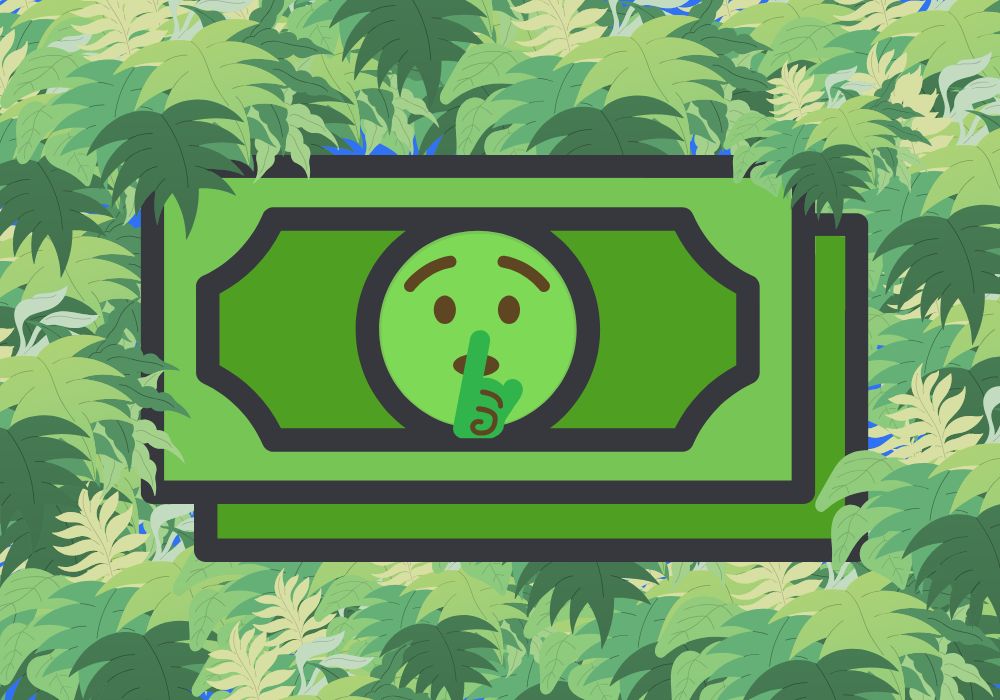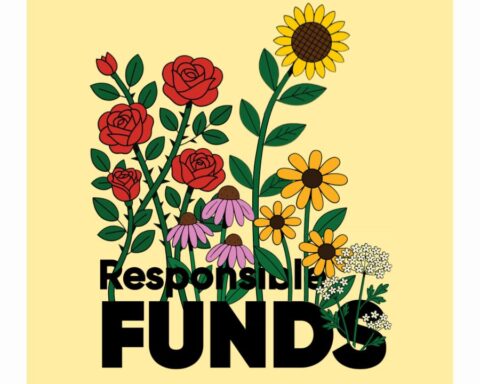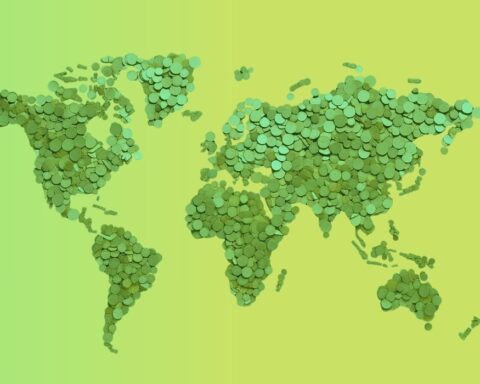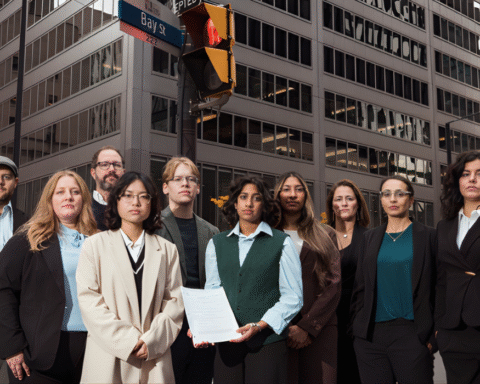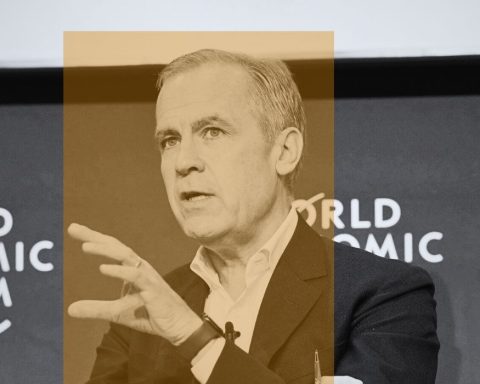For the world’s largest companies, there is a lot of money at stake when deciding how to portray their sustainability efforts, and some companies are leaving billions on the table by under-communicating their progress.
But brands that scale back their communication on sustainability to avoid shareholder criticism – an emerging trend known as “greenhushing” – are in fact reducing value for shareholders, according to a new report from Brand Finance, a U.K.-based firm that releases annual brand valuations for more than 5,000 companies globally.
This is the third year that Brand Finance has released its sustainability perception index, an analysis based on surveys of more than 150,000 people across 40 countries and ESG (environmental, social and governance) performance. Apple has topped the list for the last two years, with its reputation for sustainability valued at $39 billion, up from $33.3 billion in 2024 (all figures in U.S. dollars).
“Apple does so well because it’s a huge brand, with huge brand value to begin with,” explains Robert Haigh, Brand Finance’s director of strategy and sustainability. By Haigh’s estimation, Apple does a reasonable job of communicating its commitment to sustainability, even though its performance on sustainability, as measured by CSRHub, is only about 10% above the tech industry average.
“Even if you’re not positioning yourself as a champion of sustainability and even if it doesn’t appear to be a key driver in your sector, there is enormous value in being seen as acting sustainably,” Haigh adds.
Scale determines sustainability perception
Sustainability perception is not meaningfully linked to exceptional performance, or even an exceptional commitment to sustainability. “There is almost no detectable relationship,” Haigh says.
Some brands see benefits that far exceed their performance, an all-too-common phenomenon that seems to have risen in lockstep with the popularity of corporate sustainability initiatives. Others have especially strong or nationally significant brands, and they experience benefit regardless of what they’re doing. The key determinant for these valuations is scale. “If it’s a bigger brand, it has more play in one direction or another,” Haigh explains.
Take Tesla, for instance, which has enjoyed an outsized sustainability perception relative to its actual performance on ESG factors. In 2023, the public perception of the carmaker’s sustainability was valued at $17.8 billion, more than a quarter of the $66.2 billion that Brand Finance calculated as the total brand value: the highest proportion of any company in the report.
But Tesla saw its sustainability valuation crater by $7.3 billion from 2023 to 2025. Haigh attributes this, in part, to a correction of inflated perception of the company’s sustainability. The polarizing political activities of its CEO, Elon Musk, also contributed to the decline.

Apple’s complex record on sustainability
In Apple’s case, the story of its actual performance is more complicated. The company has set ambitious carbon-neutrality initiatives, including making every product carbon neutral by 2030. Already the company claims it has reduced its emissions by more than 60% over 2015 levels, including its move to 100% renewable energy in all of its offices, stores and data centres. In 2023, Apple debuted its first carbon-neutral smartwatches.
Apple has also built a reputation as a leader in the circular economy. It has expanded the use of recycled materials significantly across all its product lines and packaging. Since the inception of its “Zero Waste” program in 2015, Apple has reportedly diverted 3.6 million metric tons of waste from landfills, including the precious metals reclaimed by Apple’s “Daisy” robot, which is reportedly capable of disassembling 1.2 million phones a year.
In the most recent edition of the Clean200, a report co-authored by Corporate Knights and the California-based shareholder advocacy non-profit As You Sow, Apple topped the list of the world’s publicly traded companies leading the clean energy economy by a wide margin. The report found that $258 billion of Apple’s revenue came from sustainable sources, or 67% of its total revenues. Apple’s iPhones, iPads and Macs have all been awarded EPEAT gold certification, a global designation that takes into account supply chain emissions, material sources, longevity and end-of-life management.
The company has also drawn criticism. The Institute of Public and Environmental Affairs, a well-regarded research not-for-profit based in Beijing, published a report in 2023 alleging that the company had failed to disclose enough information about its suppliers to substantiate its carbon-neutrality claims. It notes that the number of Apple suppliers willing to share their emissions data dropped from 100 to fewer than 30 as Apple began making these claims.
In the 20 years that Corporate Knights has released its Global 100 rankings – a sustainability ranking where the size of the company does not lend a meaningful advantage – Apple has ranked only six times, and only once has it been among the top 50.
Greenwashing gives way to greenhushing
The Brand Finance report comes at a time when many companies are facing a pivotal decision about how they want to portray their sustainability efforts. Until now, greenwashing, or overselling the actual impact of corporate sustainability initiatives, has been the dominant concern. At the end of 2024, the Canadian government issued new anti-greenwashing provisions to the Competition Act to help the courts curb false or misleading claims, with penalties well north of $10 million for companies in violation.
This problem has not gone away, but now the opposite threat has emerged for some companies: the fear that they might run afoul of these new regulations or put off stakeholders who view sustainability initiatives as a distraction or worse. And so, a new, inverse form of dissembling has become more widespread: greenhushing, or deliberate silence about sustainability performance.
RELATED
Canadian investors stand firm on ESG despite ‘greenhushing’ trend, report finds
‘ESG tourists’ are leaving, but sustainable funds are still growing in Canada
How some sustainable investors are getting Tesla out of their portfolios
For its part, Apple has not shied away from communicating its progress on sustainability initiatives. But according to Haigh, neither has it made sustainability a core part of its business strategy. Yet the Brand Finance report concluded that despite the multibillion-dollar boost to its valuation, Apple was leaving money on the table.
According to the report, there is about a $1.9 billion sustainability “gap” for Apple; that is, Apple’s sustainability perception valuation is $1.9 billion lower than its performance might otherwise warrant. The only company with a bigger positive sustainability gap was Microsoft at $5.6 billion, which exemplifies the greenhushing trend.
“The changing political climate in the U.S., increasingly tight advertising regulation around greenwashing, and continued activist scrutiny can make it tempting for brands to mute discussion of sustainability,” the authors suggest. In fact, the report found that 98 of the 500 brands have a positive gap value of more than $100 million.
It is worth noting that despite the “gap,” Apple has remained consistent in its commitment to sustainability even as the political headwinds grew stronger. Based on this report, it appears this has been a sound business decision.
Tristan Bronca is a magazine writer and editor in Newmarket, Ontario.
The Weekly Roundup
Get all our stories in one place, every Wednesday at noon EST.


